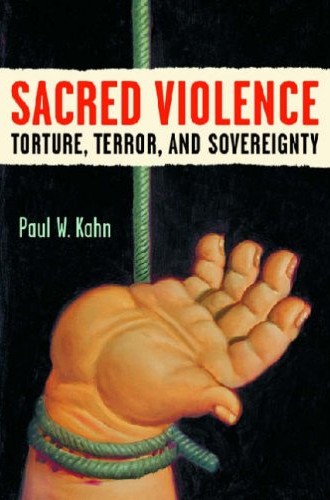The foundation of politics
Of
all the books that might be read to mark the tenth anniversary of 9/11, one of
the most probing is by a law professor at Yale, Paul Kahn. In Sacred
Violence, Kahn
picks out two distinctive political problems of our post-9/11 world--terrorism
and torture--and argues that they are parallel. Both activities occur outside
the realm of the law, and both "inscribe meaning on bodies through pain or the
threat of pain."
Kahn's
point is not the obvious one that both torture and terrorism should be
condemned as illegal. He is interested in the fact that their illegality
neither stops these practices from occurring nor prevents them from being
politically defended by those who see them as the only way to save their
community. The rise of torture in response to terrorism reveals "a space of
sovereignty beyond law; it is the space of killing and being killed for the
state."
As
Kahn sees it, terrorism and the U.S. response to it reveal a fundamental truth
about all political life, one that the modern humanitarian project has sought
to minimize but has not been able to overturn: politics is founded not on
rationally arrived at laws but on violence. Indeed, what "sovereignty" means is
the power to determine the violence that people will commit or submit to. And
sovereignty operates just as much through the directives of a democratically
elected president as through the commands of a king.






